How to make a cat affectionate?

In adult cats, as you might guess, already formed character. If you pick up an adult wild cat from the street, it is somewhat premature to expect that in a couple of weeks it will purr on your shoulder. And yet everyone wants a calm, affectionate pet to live at home without frightening aggression.
It is still unclear exactly what influences the character of a cat: environment or genetics. But there is a high probability that the offspring of an affectionate, calm cat will also be docile. Therefore, it is so important to know whose baby you are raising.
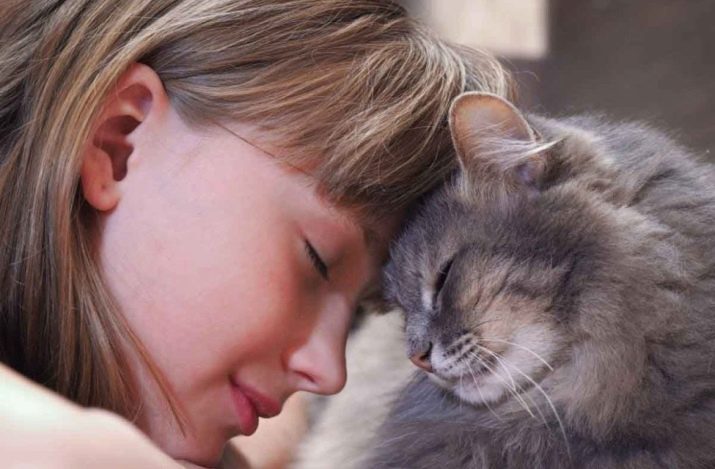


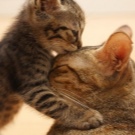


Early communication
It means communication between a kitten and a person. But you need to clearly understand that until the baby is 8 weeks old, you cannot separate him from his mother. Eight weeks is the minimum time to start socializing. At this time, the cat is already ready to learn playing and hunting skills, he can learn good behavior during grooming, and is ready to learn the norms of behavior in the feline community. Finally, 8 weeks is the kitten's readiness to feel confident. Those babies who are separated from their mother too early have excessive aggression. It is very difficult to make such a cat affectionate.
Kittens separated from their mother early are aggressive, fearful, distrustful, and also emotionally unstable. Aggressiveness is the most difficult case, since such a cat has little chance of becoming kind and flexible. But you can compensate for the early separation from your kitty mom!
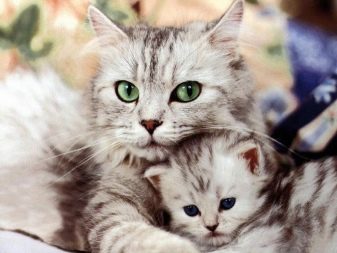
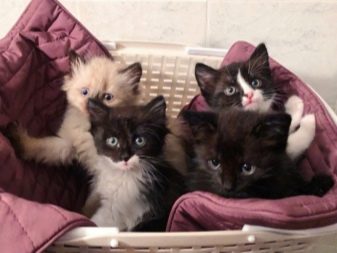
Consider what the owner needs to do.
- Taking a kitten, create an environment around him that will not change every day. They say that the dog gets used to the owner, and the cat gets used to the house. There is indeed a lot of truth in this.If everything changes in his room (more precisely, in the one where he most often happens), if you constantly offer him new beds and toys, he will be confused. Then confusion will give way to vigilance, and there it is not far from aggression.
- It is possible to accustom a cat to affection and complaisance only if the person himself is calm, predictable for a cat, and stable. Whatever one may say, but without this it is impossible to achieve what you want. It is necessary that the pet stops being afraid of you, so that it responds well to your voice, knows your habits, etc.
It is through early communication that this can be achieved. Even if the little one is still completely foolish, just getting used to a new environment for him, become a friend to him. Let him associate you with your home, to which he will become attached, of course, a little more.

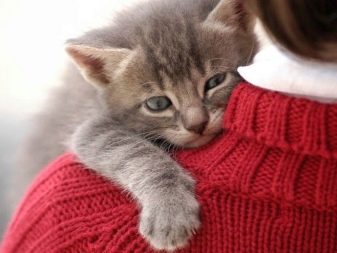
Can a cat be punished?
It will not work to make the pet obedient by physical punishment. Unlike a dog, which perceives punishment as an incentive to obedience, a cat definitely does not accept it. For some reason, many believe that teaching a cat and a dog obedience can be done using the same methods. But a cat and a dog have only one thing in common - they can live next to a person, but their differences are huge. Because what is good to apply to a dog, the cat will not tolerate.
- The cat is unable to perceive direct prohibitions. You need to negotiate with her, offer an alternative. She just won't understand "no". When a little cat does something wrong, his mother easily hits him on the nose with a paw and hums, purrs, explains in her cat what he was guilty of. Use this technique if your kitten, for example, shits in corners. But without screaming and real beatings.
- The pet should have the right to choose, no matter how strange it may sound. You don't need to force him to make contact with guests, this will only aggravate the behavior. In principle, you do not need to be obsessive with the cat - observe its habits, notice the peculiarities, try to help where possible.
If there is an older cat in the house, she can take on the role of teacher. And it works better than human upbringing. If the older cat is calm, affectionate, then her "pupil" has more chances to become the same.
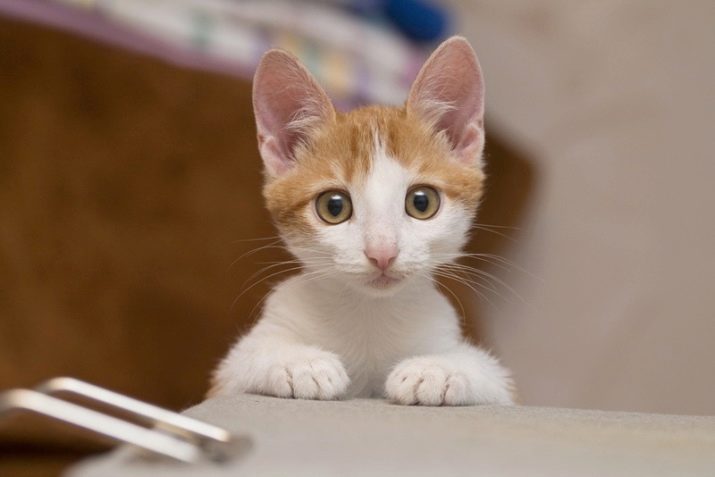
The mental needs of animals
There is such a science - zoopsychology, which studies the behavior of animals. In part, she can give an answer to the question of how to make the kitten become affectionate. If you delve deeper into the topic, you will learn a lot of interesting things about the mental needs of cats. For example, a cat is incapable of serving a person, unlike a dog, but she can live comfortably and conveniently for herself next to a person. Close (conditionally close, sometimes quite distant) contact is possible for a cat.
When they say that a cat is an animal walking by itself, this does not mean that the mental need of a pet is loneliness. This means that the cat needs a framework, boundaries, beyond which it will not allow anyone to approach.
Understanding this will allow you to get to know your pet better. There is no need to demand the impossible from him: a tame cat will never be as faithful as a dog. But he can live next to you, keeping some distance.

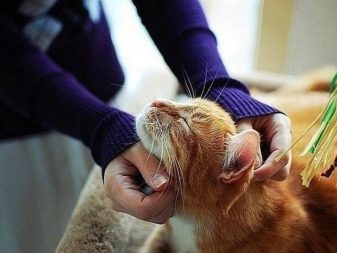
The early socialization period is the age of the cat from three to eight weeks. It is called sensitive (or sensitive). This is a good time to learn social skills, to build character. At this age, you need to communicate with the kitten, if you have the opportunity. You give her a toy - the cat gets used to it. You take away the toy, she may not accept it. This creature is very dependent on habits, on the established traditions. If you fed the cat at an unspecified time, if you have strangers at home, if you even rearranged the furniture, the cat may start to get nervous.
It is for this reason that a kitten that appears at home should be calm from the fact that everything is stable, all toys, beds, scratching posts, the tray are in place.
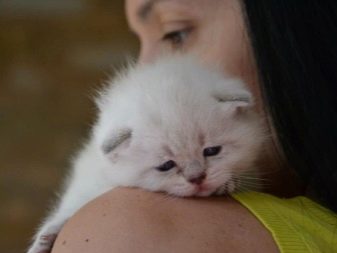

Parenting secrets
Felinologists say that a very affectionate cat is a well-fed cat. Feeding your pet is out of the question, but if your animal is starving, you can't wait for affection from him. In no case interfere with the food process, this is an intimate process for a cat (and for any creature, in principle). You do not need to feed the animal if your kitchen is crowded, noisy and loud.
- A very affectionate kitty is an animal that gets a lot of attention. If you dismiss your pet, if you are not ready to pet it one more time, do not bother yourself with conversations with the cat, then do not expect a response. Cuddle, watch TV together, read the newspaper together - take a break with your cat.
- In order for the animal to become tame, you cannot carry it on your hands. Paradoxically, this is true. You want to pet a little cute kitten, take it on handles, but why? He does not need it, he loves distance, and if he wants attention, he will definitely show it. Taking him one more time in your arms, you restrict his movements - the cat will not like it. If you take the cat in your arms, then so that it has the opportunity to leave at any time: one hand under the chest, the other stroking the animal.
- The animal is saved from danger by climbing to a height. Planting a tree at home is unlikely to work, but you can organize different houses and ladders higher. In case of stress, the cat will climb there, feeling safe. This means that there will be less stress when he has shelter.
- Games are more important than toys. For a kitten to be affectionate, it is not enough to buy bright springs and glowing balls for him. You need to play with him, have fun, involve all household members in play contact with the baby. Playing together, you begin to understand each other, the very possible closeness of man and animal is formed.
- Taboo is your arms or legs like a toy. As soon as you start tapping your toes, jerking your foot, the cat turns on the hunter and attacks. Get ready for constant scratching. In this sense, a wild beast cannot be summoned in a cat. But if, in the heat of the game, the cat nevertheless attacked you, do not pull out your hand. Freeze, look at the rascal without a smile, you can even hiss - he will let go of his hand himself. And, probably, there will be no more attacks.



It is no coincidence that breeders release all cats with an unstable psyche from breeding, they do not want to risk their business, no matter how pragmatic it sounds. If you took a cat from the street, and he has already seen how his mother drives away all idle passers-by from him, it is almost impossible to cope with this savagery. There will still be echoes. Although it's easier with babies - their "personality" is still being formed, and you can influence the situation.
Before you take a kitten, watch its mom. You should not buy a "pig in a poke" without knowing anything about his mom, about the conditions where he lived for the first weeks of his life. At least, if they are not ready to cope with his harsh disposition in the future.
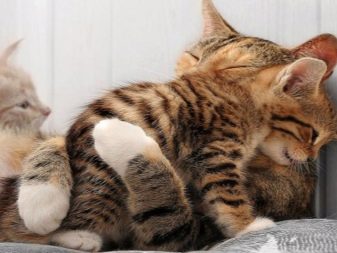

For tips on keeping a kitten in the house, see the next video.
































